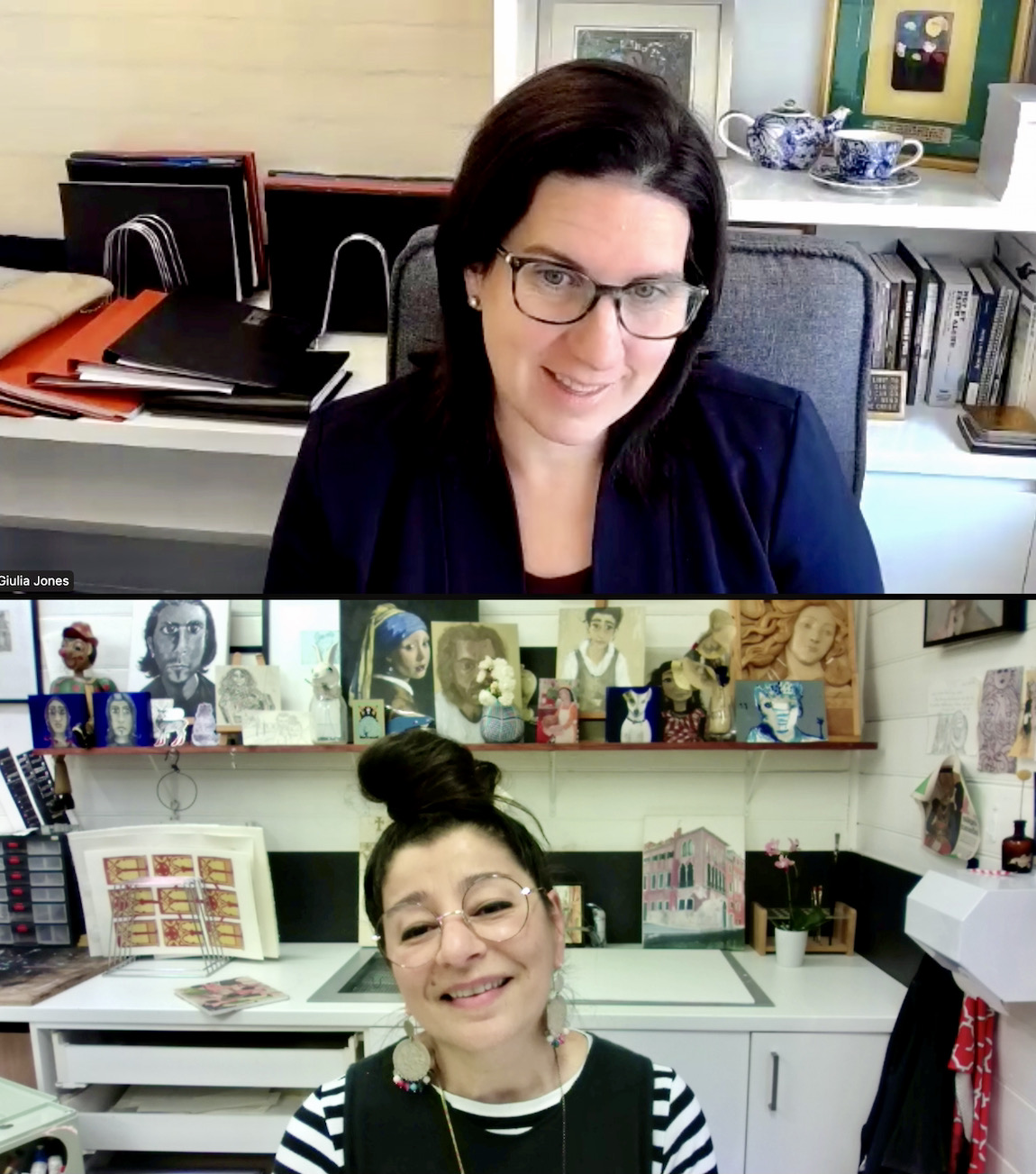Recently, Soula Mantalvanos had the opportunity to speak with Giulia Jones, the new CEO of Painaustralia.
Giulia and Soula had a lengthy conversation covering the frustrations of living with chronic pain – the main issues being its invisible nature, access to treatments, and its impact on communities across Australia (worldwide, actually).
Despite the seriousness of their discussion, they still managed to share a few laughs – Giulia is easy to speak with and wonderfully straightforward!
As an advocate who used to share a lot with PainAustralia when Lesley Brydon was CEO, Soula feels it’s nice to be connected to the organisation again. And this is many thanks to Professor Lorimer Moseley.
Soula had a niggling issue she wanted to discuss with Lorimer; the lack of value and respect developing towards people invited to contribute to discussions, research or meetings. There was an assumption that payment didn’t need to be considered for their contribution.
As someone who has been valued and paid for attending training sessions and conferences, Soula feared others were being invited to share their lived experiences as a means to tick a ‘real story’ box.
‘People’s health stories and experiences are not entertainment. Nor are we free user experience or a form of data.’
– Soula Mantalvanos, founder My Health Story
Fortunately, Lorimer was incredibly supportive and offered to take Soula’s feedback to the PainAustralia Board. He also followed up on the issue, letting her know he had relayed the problem to other organizations he was part of.
September is Pain Awareness Month, and Giulia is determined to make it a huge deal. Soula is thrilled to be on the agenda as part of PainAustralia’s campaign with My Health Story, and can’t wait to see what will be accomplished.
You’ll hear this wonderful reference in the Vimeo chat with Giulia:
‘To make what is invisible visible’
– Giulia Jones, CEO Painaustralia
It’s one of four goals the new CEO has set out for herself while in her new position. And it addresses how little education there’s been about pain – so little that people don’t recognise they have chronic pain.
Giulia experienced this herself, and it’s why she now includes this very important goal in the organisation’s agenda.
No one expects change overnight, and it can be frustrating reading ‘hopeful stuff’; but every small step can lead to something bigger.
Soula remains hopeful that the combined awareness from orgs and groups such as APMA, Chronic Pain Australia, the IASP, More Good Days, PainAustralia, Pain Revolution, the Pelvic Pain Foundation of Australia, Pelvic Sense, and the many others not mentioned here, will make a difference in time.
Watch the snippet of the conversation with Giulia. Then, read her recent speech to the Medicines Scheduling Advisory Committee, where she defends the community – powerfully!
If you’re experiencing something that PainAustralia isn’t saying, contact them and join the online conversations (Facebook or Twitter) to be heard.
There’s no voice as powerful as that of someone with lived experience and no more important information for an organization that represents them.
Read more of Soula’s advocacy on pudendalnerve.com.au





